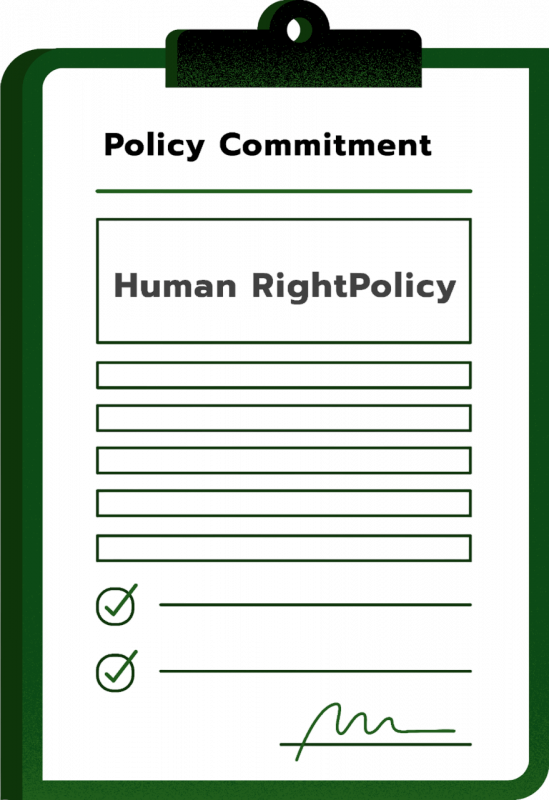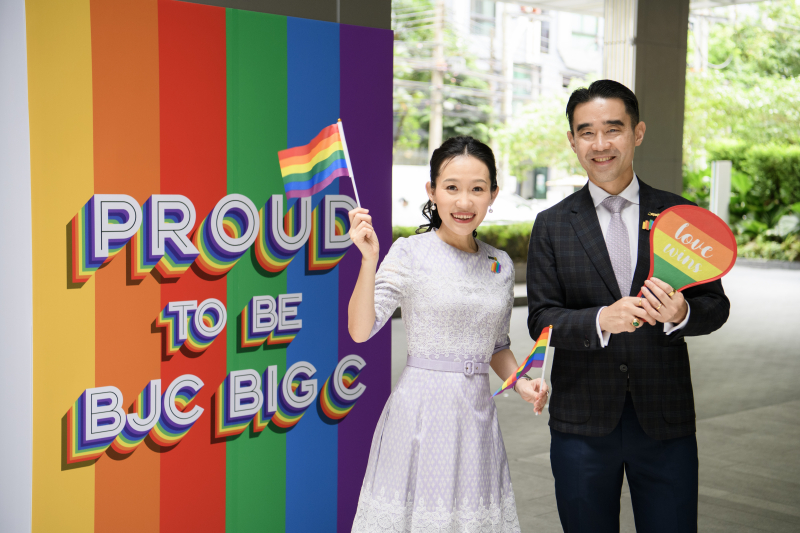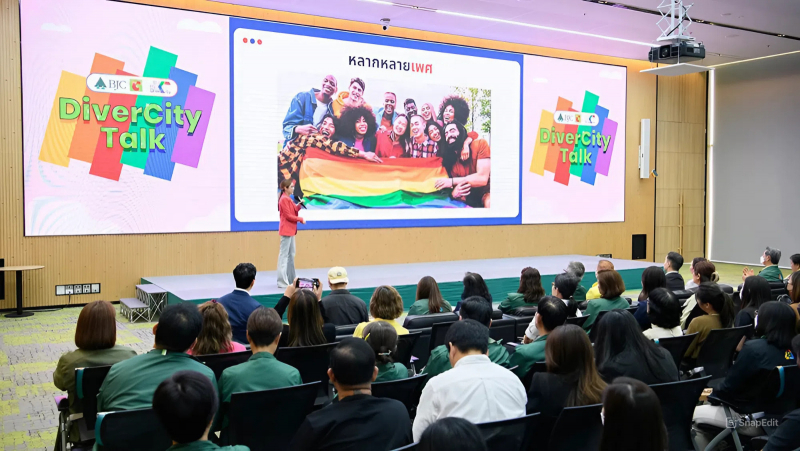
test

2 End hunger, achieve food security and improved nutrition and promote sustainable agriculture

goal 3

goal 4

goal 5

goal 6

goal 7

goal 8

goal 9

goal 10

goal 11

goal 12

goal 13

goal 14

goal 15

Goal 16
16.3: Promote the rules of law and the national and international levels and ensure equal access to justice for all.
16.5: Substantially reduce corruption and bribery in all their forms
16.7 Ensure responsive, inclusive, participatory and representative decision-making at all levels
16.b: Promote and enforce non-discriminatory laws and policies for sustainable development

Goal 17
HUMAN RIGHTS, DIVERSITY and INCLUSION
The United Nations (UN) declaration stated that everyone must have the ability to live in “a clean, healthy, and sustainable environment” a universal human rights. UN also urged countries, businesses, and international organizations to step up efforts to make that a reality. The concerns about human rights have risen globally more than before and this is since climate change is already affecting a large portion of the global population. Business operations have significant impacts on the economy, environment, and people. When companies prioritize profit over everything else, they can exploit workers, violate human rights, and harm the environment. However, businesses that prioritize human rights can benefit society by creating fair-paying jobs, providing safe working conditions, and promoting environmental sustainability. It is crucial for businesses to consider the potential negative impacts of their operations and take steps to mitigate them. By prioritizing human rights, businesses can play a crucial role in creating a more just and equitable society.
In response, BJC constantly stays up-to-date with the global trend and the UN’s declaration of human rights, and set out its commitment accordingly. All along, the company has put its effort in minimizing human rights violations and maintaining a safe, healthy, inclusive, and diverse working environment. A wide range of new engagement activities were initiated, aiming to advocate for employee diversity and inclusion throughout the value chain, protecting the rights of individual employees as well as surrounding communities, and promoting community rights, local traditions, and societal equality of the nation. With its human rights commitment through Human Rights Policy and Diversity and Inclusion Management, and Non-Discrimination Policy, as well as the compliance with law and regulations, BJC’s business operations are involved in creating negative impacts regarding human rights.
Human Rights, Diversity, and Inclusion Management Approach
Human rights have always been one of BJC's top priorities in doing business. The company believes that focusing on protecting human rights and cultivating positive relationships with all stakeholders can ensure the business's long-term growth, particularly as climate change has raised many human rights issues and concerns in society. BJC correspondingly follows the human rights principles and requirements of national and international renowned human rights standards, for instance, The United Nations Universal Declaration of Human Rights (UDHR), The United Nations Guiding Principles on Business and Human Rights (UNGPs), The United Nation’s Sustainable Development Goals (SDGs), The International Labor Organization (ILO) and Thailand’s Labor Protection Act. In addition, in 2024, there was no operation nor suppliers in any country or geographic area, at significant risk for incidents of child labor and forced or compulsory labor.
As stated in the corporate-wide human rights policy and incorporated into BJC’s culture and value, the company is committed to treating employees and other stakeholders fairly, regardless of race, gender, nationality, ethnicity, language, religion, or any other status. BJC enhanced its human rights commitment further by initiating a corporate-wide whistle blowing system as stated in steps below.
1. Identify clues or complaints about breaches or violations of rule and regulation in relation to Human Rights Policy including human trafficking, forced labor and child labor.
2. Complaints are consolidated and maintained confidentiality.
3. Establish inspection task force to check facts and propose the result to Investigation Committee.
4.
- Consider disciplinary and/or legal penalties if the action is illegal
- Consider appropriate remediation if the violation affects someone
- Identify and assign responsible person for preventing a recurrence and improving operations
5. Report as appropriate
Moreover, BJC continued to prioritize and conduct human rights best practices through new initiatives and activities, promoting its corporate value of 'Happy Workplace,' encouraging all employees to treat others fairly and valuing diversity and inclusion.
|
Policy Commitment: As stated in BJC's Group-wide Human Rights Policy, BJC places a high value on upholding best human rights practices throughout the value chain, and expects all employees and relevant business partners, including executives, suppliers, joint ventures, and other stakeholders, to comply with all applicable human rights laws, regulations, and standards, as well as international standards, in order to ensure that all stakeholders are equally respected and protected. |
|
Labor Union and Collective Bargaining Agreement (Freedom of Association)
Employees can communicate their issues, criticisms, and suggestions through a hotline and meetings, which BJC has made available. Furthermore, in order to promote positive relationships with employees, BJC encourages employees to form and join labor unions, fostering employee freedom of association. There are currently 4 labor unions operating across 4 plants, namely 1. Berli Jucker Foods Labor Union 2. Rubia Thailand Labor Union 3. The Glass Union of Thailand and 4. Fasai Labor Union.
- 100 % of BJC's entire workforce participating in the welfare committee.
- 3.38 % of employees represented by an independent trade union and covered by collective bargaining agreements.
For employees not covered by collective bargaining agreements, BJC determines their working conditions and terms of employment based on collective bargaining agreements. No country or geographic area with BJC’s operations and suppliers considered at risk, regarding labor union and collective bargaining agreement.
Moreover, according to labor law and regulation, all employees are required to participate in the group and have the right to express their ideas. Controlling, monitoring, and encouraging suppliers and subcontractors to observe human rights norms and guidelines in line with BJC's operation are all part of this.
Human Right Due Diligence
Regarding the UN Guiding Principles on Business and Human Rights (UNGPs), The Human Resource Department conducts Human Rights Due Diligence every three years, and it analytically evaluates potential human rights risks associated with BJC business activities throughout the value chain. BJC’s human rights due diligence process includes;

BJC conducts Human Rights Due Diligence (HRDD) every three years in accordance with its HRDD Manual, establishing this as the company’s minimum standard. The latest Human Rights Report, published in 2023, covers the period 2023–2025 and sets out identified risks, mitigation actions, and monitoring requirements. In line with the Manual, BJC reviews progress on these mitigation actions each year to ensure continuous improvement and accountability.
In addition to the three-year HRDD cycle, BJC conducts annual online human rights surveys among employees to capture emerging issues and improvement opportunities. In 2024, this annual survey placed a targeted focus on mental health in the workplace, reflecting the growing global recognition of mental health as a critical human rights and workforce concern. The survey findings were analyzed and reported to top management, and were used by the Human Resource Department, with support from the Sustainability and Risk Management Department, to develop and deliver relevant training programs.
The 2024 HRDD was carried out exclusively among employees at the BJC Big C head office. This initiative aimed to gather insights into mental well-being and foster a culture of open communication. The employee survey revealed key feedback, such as a desire for better time management strategies and more transparent communication from managers. BJC swiftly acted on these findings. The Human Resources and Sustainability & Risk Management Departments collaborated to develop targeted mental health training programs. Managers received specialized training on creating positive work environments, while all employees participated in a comprehensive mental health course. The survey results were directly integrated into the training content to ensure practical solutions were addressed. This proactive approach highlights its unwavering commitment to cultivating a workplace environment that respects, values and empowers its employees while proactively addressing potential human rights risks. By placing mental health at the forefront, BJC demonstrates a deep prioritization of employee well-being, ensuring that every individual feels supported and valued. This dedication aligns seamlessly with global trends that recognize mental health as an indispensable element of a thriving workplace culture. By fostering inclusivity and striving to let no one behind, BJC reinforces its vision of creating a supportive environment where everyone, regardless of their circumstances, has the opportunity to grow, contribute and succeed. This approach not only enhances employee satisfaction and productivity but also strengthens the company’s position as a socially responsible and forward-thinking organization.
Moreover, while BJC has robust human rights policies, we recognize that risks exist within our supply chain. Key concerns include labor conditions and supplier practices. In 2024, under BJC’s supplier risk assessment, we identified no potential human rights risks, no forced or compulsory labor risk and no child labor cases were found.

Monitoring and Communication
BJC is committed to fostering a safe, respectful, and inclusive workplace free from bullying and harassment. To strengthen this commitment, the company raises awareness on whistleblowing and reporting mechanisms through regular email communications and team head briefings. These efforts ensure that all employees and managers are informed about how to recognize, report, and address instances of workplace misconduct in compliance with BJC’s anti-harassment policy and legal standards. Employees also have access to confidential reporting channels, ensuring fair and prompt resolution of any reported concerns while maintaining a zero-tolerance approach to workplace harassment.
BJC implements the corporate-wide procedure to monitor human rights risks throughout the value chain. The procedure provides a clear process of managing human rights complaints from start to finish as follows;
1. Complaints received via whistle blowing channels;
1.1 Big C Whistle Blowing
- Direct call to investication team 24 hours
- Call center 1756 during 08.00 - 22.00 hrs.
- Big C website
- QR code
1.2 BJC Whistle Blowing
- Direct call 023671401
- e-mail: comsec@bjc.co.th
- Post to HR or company secretary
- BJC website
2. The information will be kept confidential.
3. Investigation committee is set up to investigate.
4. Punishment approval
5. Report as appropriate
Remediation and Grievance Mechanism
BJC has established a process of receiving complaints, correcting actions, providing justice, punishing the perpetrators and compensating the victims appropriately. If there is a case relating to human rights occurs, the responsible departments will report the issues to human resources management. Following this process, the investigation will take place to navigate the roots of the problems. The committee for investigation will also be appointed to Establish a Commission of Inquiry to consider and convict those who commit crimes in accordance with the company's requirements and/or consider legal action in case of wrongdoing in violation of the law, as well as to consider remedies for those affected appropriately.
In terms of compensation, in addition to providing justice to all parties, BJC also focuses on treating those who have been subjected to human rights abuses in both monetary and non-monetary ways. With a compliance with the law, BJC place importance on rehabilitation and care for both physical and mental health conditions, as well as putting great emphasis on preventive planning so that the case does not happen again. The compensation can be categorized as follows:
1. Monetary Compensation:
- Claims for physical and mental recovery: the cost of maintaining and recovering the physical and mental health of those affected.
- Socioeconomic claims: expenses for material damages and opportunity costs.
2. Non-monetary Compensation:
- The rehabilitation of physical and mental health: in addition to monetary compensation, other actions may be required for recovery.
- Satisfaction is our focus to strengthen the relationships between the company and those who are affected. This may include expressing regrets and apologies in public and private, along with long-term care.
- The prevention of recurrence is ensured for those who are affected and stakeholders. This is to prevent a repetition in the future.
Types of Remediation Actions
BJC has identified the following types of remediation actions;
1. Immediate remediation actions refer to the remediation actions that must be executed immdediately when an incident occurs.
2. Remediation actions related to BJC's policy, law and regulations refer to the steps or process of remediation actions, stated in the company's policy, law or regulations.
3. Long-term remediation actions refer to longer-term of remediation actions taken place in a period of time such as rehabilitation.
Human Rights, Diversity, and Inclusion Training
In order to raise human rights’ awareness and equally respect to all level of staff in the organization, BJC has set up Human Rights Training for all employees through online HR application. Furthermore, post-test are provided to evaluate the effectiveness of the training session. The post-test also include an opportunity for employees to provide additional suggestions for future session improvements. To ensure corporate wide awareness and understanding against violations against human rights, BJC is committed to continuously improve the knowledge and understanding of employees in the human rights to be more effective.
1. BJC Human Rights Training
BJC’s dedication to fostering human rights awareness and respect throughout the organization remains unwavering. Leveraging the successes of prior iterations, the 2024 human rights training program employed innovative online platforms and the HR mobile application to deliver comprehensive training to employees. The training curricula encompassed BJC’s Human Rights Policy, Supplier Code of Conduct, and the United Nations Guiding Principles on Business and Human Rights (UNGP). Key topics addressed included the identification and mitigation of human rights violations, the Human Rights Due Diligence Process (HRDD), and the established whistle-blowing procedures for reporting concerns. As a fundamental element of onboarding, all new recruits are mandatorily enrolled in online discrimination and harassment training alongside their human rights training. Additionally, to ensure sustained knowledge and application, regular on-site training sessions are conducted every three years for 100% of employees and security personnel.
2. Human Rights, Diversity and Inclusion Training for Factories
BJC conducted comprehensive onsite sessions at key factory locations, encouraging a two-way communication model to foster open discussions. In the fourth quarter of 2024, BJC’s Sustainability and Risk Management Department held these sessions at Berli Jucker Cellox, and Berli Jucker Foods, Rubia Industriesa and Thai Glass Industries.
In anticipation of Thailand’s upcoming legislation on same-sex marriage, set to take effect in early 2025, BJC updated corporate-wide policies and benefits to ensure inclusivity for all gender identities. These changes reinforce BJC’s dedication to DEI, recognizing its national and global significance and its intention to eliminate and prevent all forms of forced or compulsory labor. Thus, the training’s curriculum included updated corporate policies and focused on practical applications of DEI principles. Moreover, the training also emphasized critical topics, including:
- United Nations Guiding Principles on Business and Human Rights (UNGP)
- Updated whistle-blowing procedures
- Corporate-wide Human Rights Policy and Code of Conduct
- Human rights considerations for key stakeholders
- Risks related to human rights, diversity, equity, and inclusion
- Current Issues and Case Studies on Diversity and Inclusion
Following each session, relevant issues and participant questions were discussed in depth, with specific recommendations provided. Across the various factory sites, over 100 managers and function heads engaged in the training, underscoring BJC’s commitment to embedding DEI across all levels of the organization.
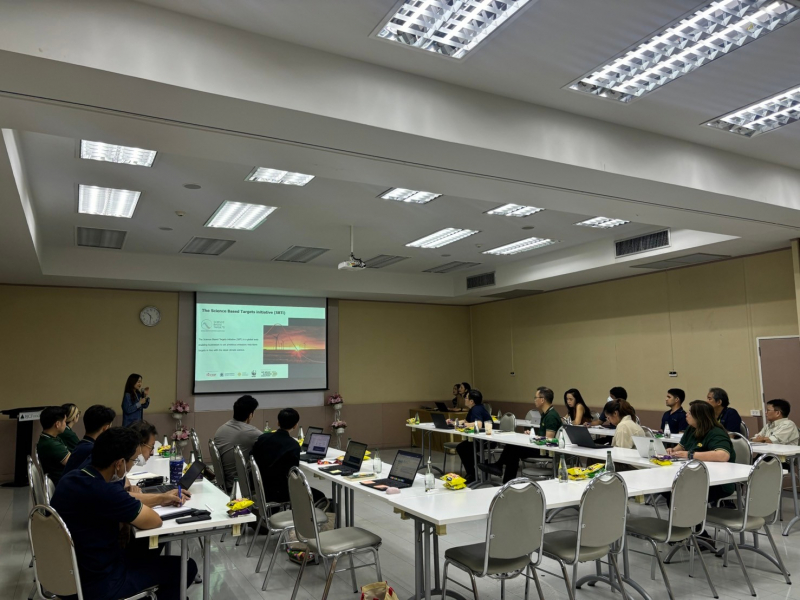
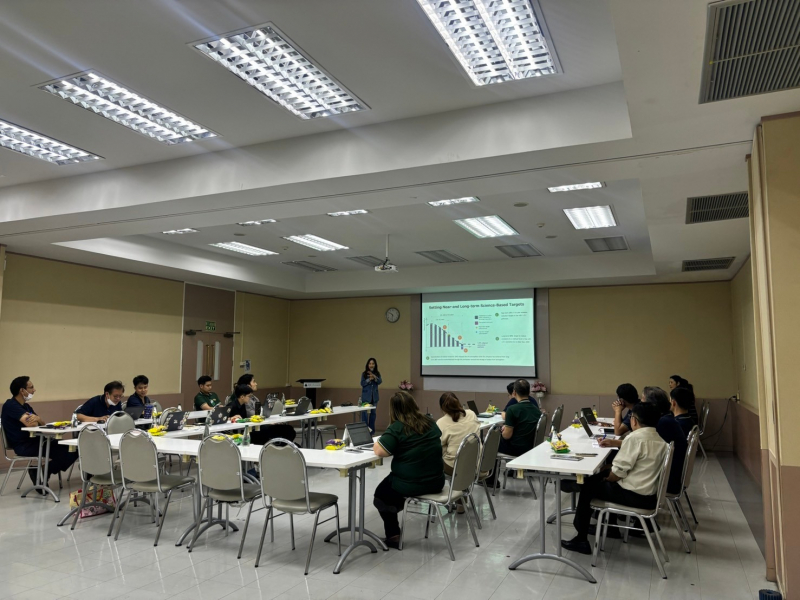
3. Human Rights & Diversity Training for HR Personnel
BJC believes diversity recruiting is an important step toward creating an inclusive workplace that is reflective of the customers it serves, and best prepared to compete in a changing economy and marketplace. The training on human rights and diversity for HR Personnel has been conducted virtually, as an interactive sharing session where the HR personnel of BJC and its subsidiaries could share and discuss their related cases. The ground knowledge and global trends on human rights and diversity, especially for recruitment process has been provided by Sustainability & Risk Management Department.
4. Human Rights Training for Big C Store Staffs
Amidst growing public awareness and heightened customer expectations regarding human rights, BJC acknowledges the evolving concerns of Big C customers regarding their rights. Consequently, the company has intensified its commitment to upholding human rights, particularly in the realm of customer service. Human rights training sessions are conducted across Big C stores nationwide, targeting key personnel at the management level, specifically the Big C store general manager position. These sessions aimed to foster a shared understanding of expected behavioral standards among employees concerning “Human Rights and Customer Service”. It was expected that each store general manager, once well-versed in these standards, would serve as a key role model, setting examples for everyone in the workplace and helping to prevent any future breach cases. These sessions addressed human rights risks associated with customer interactions, including aspects related to health and safety, equity, and data privacy. Real-world business case studies and facilitated discussions further solidified these crucial learnings. This proactive approach ensures that Big C staff are empowered to uphold human rights while delivering an unparalleled customer experience.
Diversity and Inclusion Highlight Projects
|
1. DiverCity Project |
|||
|
In 2022 BJC initiated DiverCity Project, with a tagline DiverCity – A Community for All. |
|
||
1.1 Business, Gender Diversity and the Path Ahead
In February 2024, BJC hosted the international conference, “Business, Gender Diversity, and the Path Ahead”. This landmark event brought together over 1,500 participants from the public sector, private enterprises, educational institutions, and the social sector—making it the first event of its kind in Thailand to unite representatives from each group on a single stage. The conference underscored BJC’s commitment to promoting gender equality in society by aligning policies and frameworks with Thailand’s strategic plans, contributing to a balanced, inclusive society, and advancing the UN Sustainable Development Goals.
With keynote speeches from experienced leaders, including Mr. Aswin Techajareonvikul, CEO of BJC Big C Group, and Mr. Sretha Thavisin, Prime Minister and Minister of Finance, the conference highlighted the importance of implementing laws and policies supporting gender diversity. In his address, Mr. Aswin noted the ongoing shift towards embracing gender diversity in Thailand, where societal norms have traditionally favored male leadership. This imbalance has limited representation in leadership roles and hindered professional growth for LGBTQ+ individuals, reflecting an opportunity for Thai organizations to move towards greater inclusivity and alignment with global standards.
The conference also explored Thailand's advancement of the Marriage Equality Act, a proposed legislation to ensure legal rights for same-gender couples. Prime Minister Sretha Thavisin announced government policies supporting this legislation, which will allow same-gender couples legal rights for engagement, marriage, and family roles, comparable to those of heterosexual couples. This policy is expected to foster equality in the legal and social recognition of diverse family structures, contributing to societal stability and balance.
Business, Gender Diversity, and the Path Ahead serves as a key milestone in BJC’s journey to create a more inclusive society. By championing gender equality through collaborative and far-reaching initiatives, BJC demonstrates its commitment to fostering a diverse, equitable, and supportive environment for both its employees and the communities it serves.
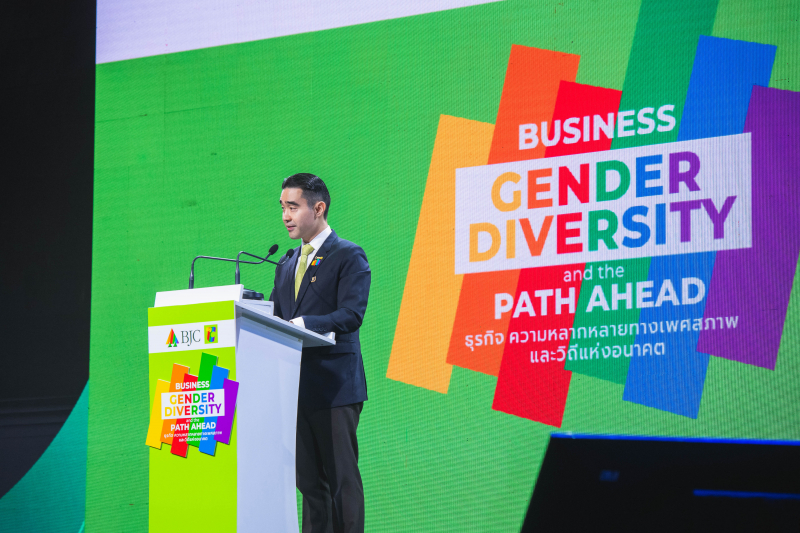 |
||
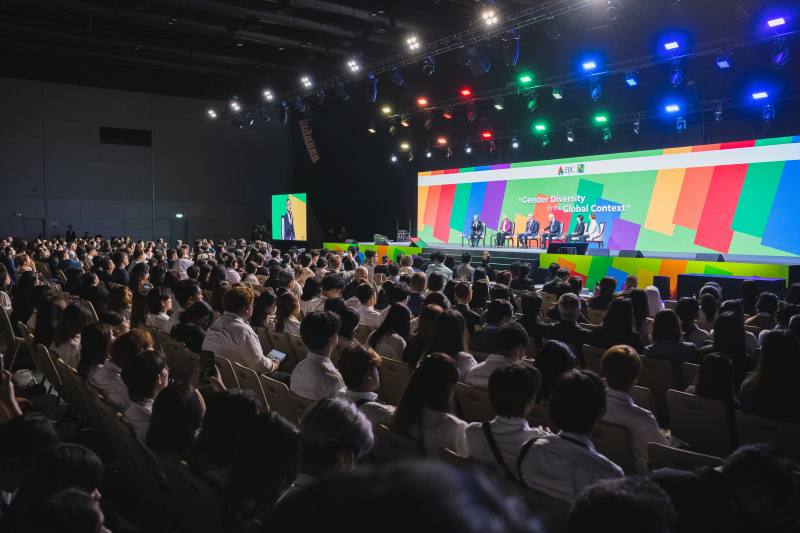 |
1.2 DiverCity Day
In June 2024, BJC proudly hosted its annual DiverCity Day, a flagship internal event dedicated to reinforcing the company’s commitment to diversity and inclusion. The event emphasized BJC’s dedication to creating a workplace where all individuals feel valued and respected, regardless of background or identity. DiverCity Day 2024 celebrated diverse perspectives and experiences, aiming to foster a culture of acceptance and peaceful coexistence throughout the organization. This year’s event welcomed 562 participants onsite, including BJC employees and key suppliers, underscoring the importance of engaging a broad audience in the company’s DEI initiatives.
The day featured DiverCity Talk on "Gender Diversity & Inclusive Marketing" presented by Thailand’s leading digital marketing experts. This session provided insights into the role of diversity, equity, and inclusion (DEI) in business, highlighting research that demonstrates how DEI enhances both efficiency and effectiveness in organizational performance. Recognizing the increasing importance consumers place on DEI, the discussion focused on equipping attendees with an understanding of customer diversity across all dimensions. Practical insights were offered on creating marketing campaigns and communication strategies that resonate with diverse audiences, benefiting both business outcomes and customer engagement.
DiverCity Day also coincided with Pride Month, where BJC raised awareness around LGBTQ+ inclusion, reinforcing its diversity and non-discrimination policy and promoting an inclusive, supportive workplace. By investing in such initiatives, BJC continues to build a workplace where employees and partners can thrive, contribute their unique talents, and support the company’s long-term success. This commitment aligns with BJC’s vision of contributing to a more equitable, inclusive society and fostering innovation within a diverse workforce.
|
|
|
1.3 BJC Big C Foundation for UNICEF: Bring Up a Better Life – For Our Children
BJC Big C Foundation has entered into a significant partnership with UNICEF Thailand through a Memorandum of Understanding (MoU) signed in March 2024. This three-year collaboration underscores BJC’s commitment to supporting early childhood development and creating family-friendly environments across Thailand.
The MoU aligns BJC’s efforts with UNICEF’s Early Childhood Development program, aiming to provide children with a solid foundation for lifelong learning and well-being. Through this partnership, BJC has launched the following initiatives to support young children and their families:
- Healthy Checkout Lanes: Thailand faces a significant health challenge with rising obesity rates, particularly among children, which has become a pressing national concern. To address this issue and support the country’s efforts in combating obesity, BJC introduced "Healthy Checkout Lanes" at 200 Big C stores nationwide. This program promotes the well-being of young children by reducing their exposure to unhealthy snacks and sugary items at checkout points. By creating a healthier shopping environment, this initiative not only aligns with national health objectives but also fosters a positive impact on families and encourages healthier purchasing behaviors. It exemplifies BJC’s commitment to addressing societal challenges and ensuring that no one is left behind in the journey toward better health and well-being.
- Children's Corners and Breastfeeding Rooms: Big C stores established child-friendly spaces and breastfeeding rooms for employees and customers, supporting family needs in public and workplace settings. These spaces help parents and caregivers feel supported, enhancing their ability to balance work and family life while contributing to a nurturing atmosphere for children.
- Promoting Family-Friendly Policies: BJC advocates for policies that support families within the company and in broader communities, ensuring that employees can prioritize family needs without compromising their professional growth. This initiative is central to creating a more inclusive work environment and aligns with UNICEF’s principles of child-friendly business practices.
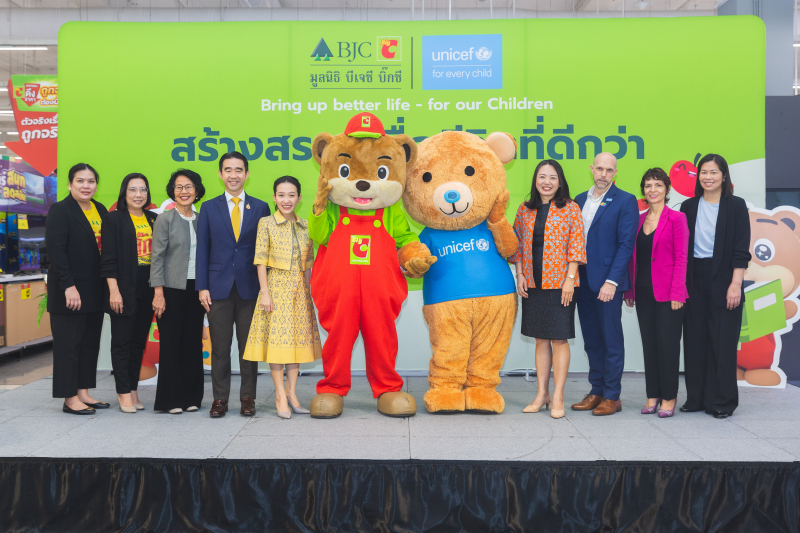
1.4 Collaboration with UNDP Thailand and Sasin Management School: Developing the Inclusion Toolkit
In alignment with BJC’s commitment to advancing sustainable development and fostering inclusive practices, the company has contributed to UNDP Thailand and Sasin School of Management’s development of Inclusion Toolkit. This strategic collaboration reflects BJC’s dedication to promoting diversity, equity and inclusion (DEI) in the workplace and broader society. The Inclusion Toolkit is designed to empower organizations with actionable guidance and practical tools to foster an environment that values and respects all individuals, regardless of their backgrounds.
As an industry leader, BJC contributed its insights and best practices to the development process, drawing from our extensive experience in corporate social responsibility, ethical business practices, and workforce inclusion. Our team worked closely with experts from UNDP Thailand and Sasin to integrate practical strategies and real-world examples into the toolkit, ensuring that the materials are both relevant and impactful for businesses across various sectors. The toolkit has been successfully launched in May 2024. It is available for download in both Thai and English, ensuring accessibility for a wider audience. https://www.undp.org/publications/DEI-inclusion-toolkit
